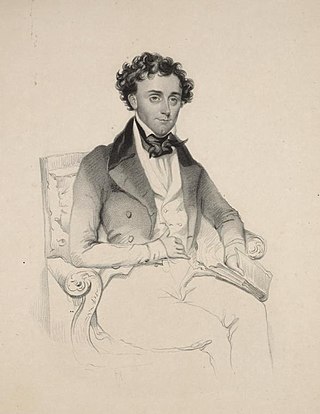
Thomas Dartmouth Rice was an American performer and playwright who performed in blackface and used African American vernacular speech, song and dance to become one of the most popular minstrel show entertainers of his time. He is considered the "father of American minstrelsy". His act drew on aspects of African American culture and popularized them with a national, and later international, audience.

Joel Walker Sweeney, also known as Joe Sweeney, was an American musician and early blackface minstrel performer. He is known for popularizing the playing of the banjo and has often been credited with advancing the physical development of the modern five-string banjo.
Bryant's Minstrels was a blackface minstrel troupe that performed in the mid-19th century, primarily in New York City. The troupe was led by the O'Neill brothers from upstate New York, who took the stage name Bryant.
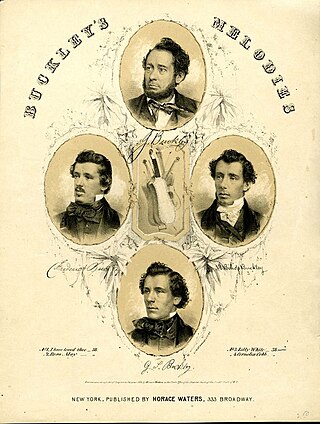
Buckley's Serenaders, also known as Buckley's Melodies, was a family troupe of English-born American blackface minstrels, established under that name in 1853 by James Buckley. They became one of the two most popular companies in the U.S. from the mid-1850s to the 1860s, the other being the Christy and Wood Minstrels.

Lottie Collins was an English singer and dancer, most famous for introducing the song "Ta-ra-ra Boom-de-ay!" in England.
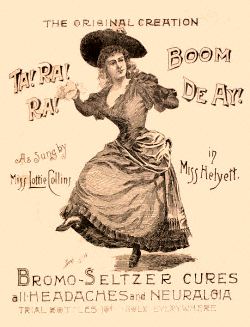
"Ta-ra-ra Boom-de-ay" is a vaudeville and music hall song first performed by the 1880s. It was included in Henry J. Sayers' 1891 revue Tuxedo in Boston, Massachusetts. The song became widely known in the 1892 version sung by Lottie Collins in London music halls, and also became popular in France.
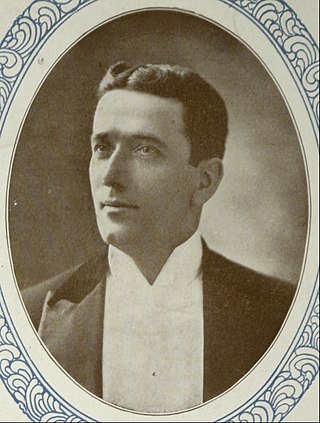
Barney Fagan was an American performer, director, choreographer, and composer.
George H. Coes was an American minstrel music performer. He appeared in numerous minstrel shows in California and throughout the Northeastern United States.

John Hodges ; known as Cool White, was an American blackface minstrel entertainer, who wrote or popularized the song "Buffalo Gals", published by him in 1844 under the title "Lubly Fan". There is some dispute as to whether he composed the tune or adapted a traditional air.

Charles T. "Charlie" or "Charley" White (1821–1891), was an early blackface minstrel entertainer.
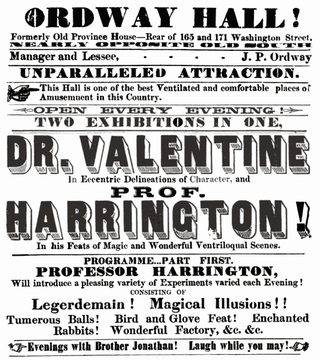
Ordway Hall (est.1852) was a theatre in Boston, Massachusetts located off Washington Street in the former Province House. John P. Ordway established and managed the hall, which specialized in "negro minstrelsy," particularly the Ordway Aeolians, his own troupe.

Paul Stanley was a German-born American composer and vaudeville comedian who some credit with writing the music for the ditty Ta-ra-ra Boom-de-ay for Henry F. Sayers' 1891 musical entertainment, Tuxedo.
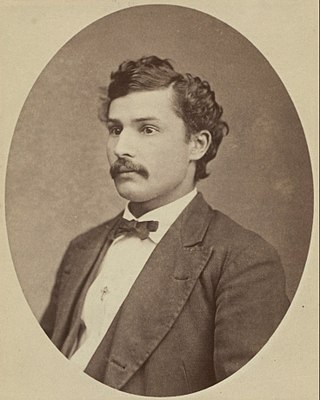
Frank Dumont was an American minstrel show performer and manager.

Charles H. Duprez was an American minstrel show performer and manager. He is best known as one of the principals of the Duprez & Benedict's Minstrels, which was a highly popular American minstrel group in the late 1860s and 1870s.

Duprez & Benedict's Minstrels were an American minstrel group led by Charles H. Duprez and Lew Benedict, which enjoyed its greatest popularity in the late 1860s and 1870s.

Edward LeRoy Rice was an American producer of minstrel shows. He was the leading authority on the history of minstrel shows. He also bought and sold theatrical memorabilia.

John W. Vogel was an American manager and owner of African-American minstrel companies in the United States.
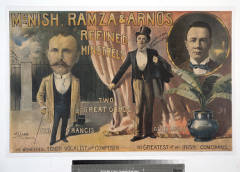
Ramza and Arno's was a successful traveling minstrel show active during the late 19th century and early 20th century. Ramza and Arno were considered one of the top stars in the traveling vaudeville acts and were referred to as "comical comedians", "knockabout comedians", acrobats and, "versatile and comic artistes". The duo often traveled with other successful and famous performers of the time. Their acts notably included trapeze stunts, pantomime sketches, as well as various other types of live performance.

Julia Wildman Gould was an English-born singer and actress, who was the first woman to become a leading blackface performer in American minstrel shows.
Thomas L. Moxley was an American actor, blackface minstrel show entertainer, and theatre manager. As a stage actor he performed under the name Master Floyd and was an acclaimed female impersonator in minstrel shows. He formed a close partnership with the minstrel show impresario, actor, and theatre manager George Kunkel. He was a leading member of Kunkel's Nightingales, one of the most popular minstrel shows of the 1850s and 1860s, and toured widely with the troupe during this period. In 1855 he formed a theatre management firm with Kunkel and John T. Ford; co-managing multiple theaters in Baltimore, Washington D.C. and Richmond, Virginia. These included the National Theatre in Washington D.C., and the Richmond Theatre in Virginia. When Kunkel adapted Harriet Beecher Stowe's novel Uncle Tom's Cabin for the stage in 1861, Moxley portrayed the role of Topsy. In his obituary he was credited as the first actor to perform the role of Topsy in the theatre.

















